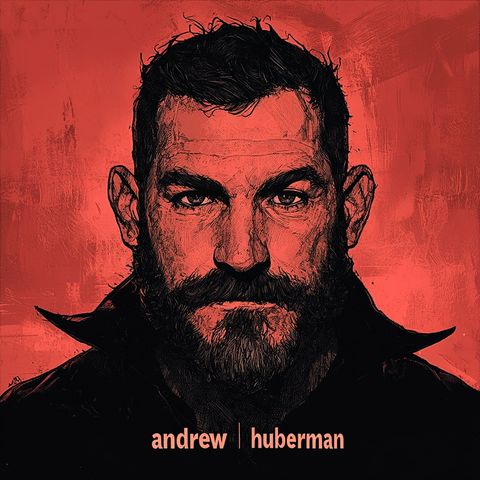Unveiling the Secrets of Sleep: A Peek into Andrew Huberman's Evening Ritual Forget late-night Netflix binges and frantic email checks! For neuroscientist extraordinaire Andrew Huberman, the path to optimal sleep lies in a meticulously crafted evening routine. Forget crash diets and trendy gimmicks; Huberman's approach hinges on understanding the science of sleep and tailoring his night to its rhythm. Fueling for Rest: Huberman's journey begins at dinner, around 6:30 PM. Unlike his daytime meals, designed for alertness, the evening feast becomes a carbohydrate celebration. Why? The science is clear - carbs trigger a tryptophan-serotonin pathway, effectively dimming the cortisol spotlight and paving the way for relaxation. So, picture cozy pasta bowls and steaming soups, partnered with clean protein, not burgers and fries. Lights Out, Screens Down: After dinner, the glow of phone screens fades. Instead, gentle music, absorbing books, and maybe some lighthearted conversation fill the air. This switch isn't just about winding down; it's about mimicking nature's sleep cues. As dusk approaches, Huberman starts dimming the lights, mimicking the sunset and priming his body for melatonin production. Nature's nightlight is ready to kick in! Supplements: A Helping Hand, Not a Magic Bullet: Huberman believes in the power of sleep hygiene, but he also embraces the support of well-chosen supplements. Magnesium threonate or bis-glycinate grace his nighttime routine, deepening sleep quality. Apigenin, a chamomile cousin, and theanine, a GABA booster (avoid it if prone to sleepwalking!), round out his evening cocktail. Beyond Sleep: Non-Sleep Deep Rest: Even Huberman, with his sleep-savvy routine, might occasionally face that unwelcome midnight wake-up. That's when his non-sleep deep rest (NSDR) techniques come in. These mindfulness practices, like slow breathing and visualization, soothe the mind and body, easing him back into slumber's embrace. Huberman's Blueprint: A Guide, Not a Rulebook: Huberman's evening symphony is a testament to his deep understanding of the science of sleep. But it's also a personalized melody, tuned to his specific needs and preferences. The takeaway? There's no one-size-fits-all sleep solution, but Huberman's approach offers valuable insights:
- Respect the rhythm: Align your evening with your body's natural sleep-wake cycle.
- Mind the fuel: Carbohydrates at night can be your allies, promoting relaxation and sleep.
- Dim the lights: Mimic the darkness of night to trigger melatonin production.
- Embrace supplements: Carefully chosen supplements can add an extra layer of sleep support.
- Practice NSDR: Train your mind and body to find deep rest, even when sleep is elusive.
Huberman's routine is a window into the fascinating world of sleep science. It's a reminder that simple, purposeful tweaks in our evening habits can have a profound impact on our sleep quality and overall well-being. So, why not dim the lights, put down your phone, and embark on your own sleep-enhancing journey? Sweet dreams await! Thanks for listening to Quiet Please. Remember to like and share wherever you get your podcasts.


Comments